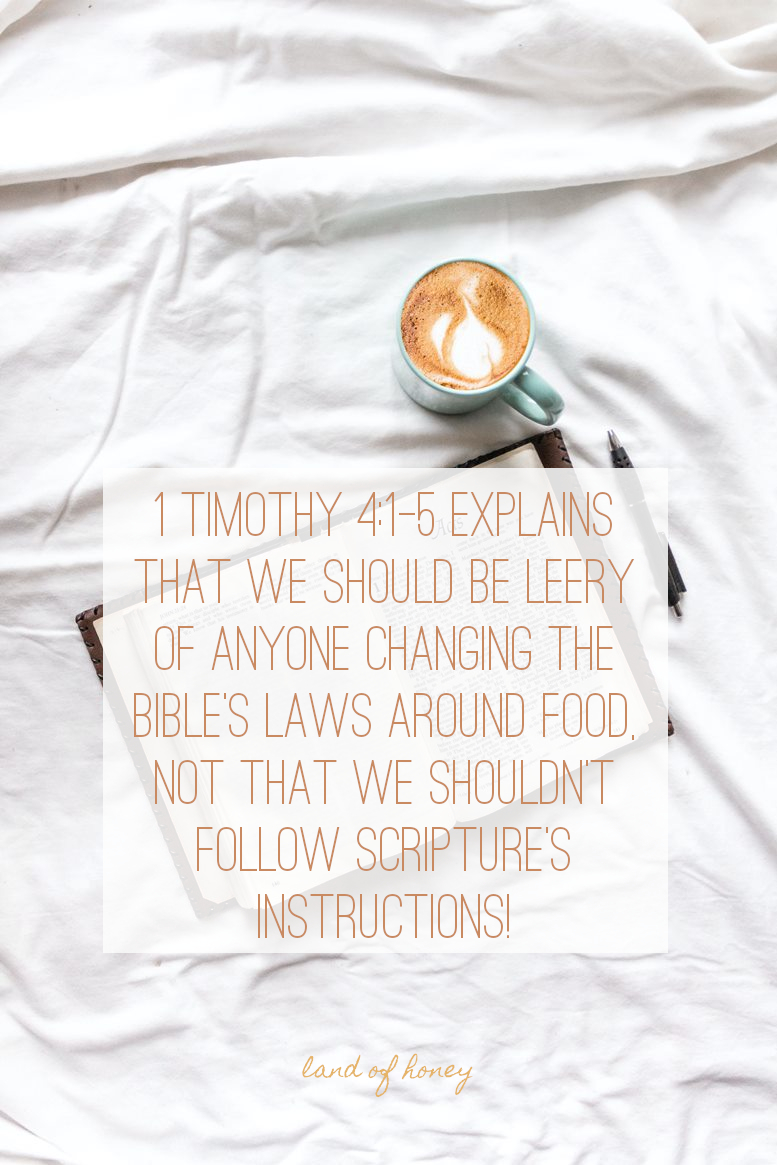This post examines the meaning of Romans 14:5 and what it means by saying that one person considers certain days more sacred than another, and specifically if it's talking about Sabbath keeping or celebrating Bible holidays. We will take a look at correct understanding of this New Testament passage to see that it's talking about fasting.
"One person considers one day more sacred than another; another considers every day alike. Each of them should be fully convinced in their own mind." -Romans 14:5
People often take this verse to mean:
-It doesn't matter what day we keep the Sabbath.
-That the Sabbath day is not more sacred than the other six days of the week.
-That Biblical holidays like Passover are of no consequence, because all days are the same.
-It's up to us to decide if anything related to the Sabbath or Bible holidays matters.
And if this one verse was all I had to go by, I'd have to say, all of those ideas would make sense...but we have 31,000 other verses of Scripture that we can check these beliefs against. It is reckless to pull one verse out of the Bible and insistent that it somehow undoes many other parts of the word of God.
These interpretations are only possible when we yank the above verse grossly out of context. I had a science teacher with a somewhat defective skeleton in his classroom. There was a way he could grab the spine and it would completely separate from the rest of the bone structure. It was disconcerting to watch even a fake spine move like that. And that's basically what's happening to Romans 14:5.
People are quick to yank the fifth verse out and claim it's about the Sabbath, but the entire rest of the chapter is about food and eating! Look at the context: the passage starts with talking about how some people eat meat, but some stick to vegetarian diets, it talks about fast days, and the importance of not distressing others with what you eat.
Doesn't it seem rather odd to say that this verse is positively dealing with the Sabbath and/or Biblical holidays when it doesn't once mention them, and the entirety of the chapter is focused on eating? It wouldn't make a lot of sense for Paul to jam another topic in the middle of his thoughts on food...especially when we don't see that idea expressed anywhere else in the Old or New Testaments. Actually, Scripture repeatedly tells us the opposite of this thought...it says that the seventh day is holy. If the point of Romans 14:5 is to say that the seventh day is not holy, then that's totally out of line with many parts of Scripture.
So what does Romans 14:5 actually mean?
While there isn't any evidence suggesting that "one person considers one day more sacred than another," is supposed to mean, "You get to decide when the Sabbath is, or if there's even such thing as a Sabbath day." We know this cannot be what the Bible means, because the Bible many times says the opposite. One of the ten commandments is to remember the Sabbath day and keep it holy.
But if we look at this comment in light of the very next verse, we see that it's about fasting.
"Whoever regards as special does so to YHWH. Whoever eats meat does so to YHWH, for they give thanks to God, and whoever abstains does so to YHWH and gives thanks to God." -Romans 14:6
Romans 14:6 shows us that Romans 14:5 means that it's not a Biblical issue if you think one day is more sacred for fasting, than another.
While Scripture speaks often of fasting, and the Messiah's words in Matthew 6:16 (When you fast, not if) imply fasting as a given in the lives of his followers, it does not specify certain days as especially good or not for fasting.
(A lot of people will bring up Yom Kippur and the directive in Leviticus 23:29 directive to 'deny yourselves.' Note that the word used for 'deny' is a different one from what Scripture uses for fasting. A case could certainly be made that fasting can be part of denying or humbling oneself, but it is not an explicit call for all Israel to fast. This could have been in debate at the time, and could even be what Paul is seeking to address in this part of Romans.)
Note that while Paul is validating differences between believers, he is doing so only in regards to actions that fit within Biblical law. Fasting and not fasting are both permissible in Biblical law, as are vegetarian diets and non vegetarian diets. Paul is not saying that actions don't matter at all and that believers are now free to cast away commandments of God. He's saying that certain differences are okay. There may be days when you feel especially called to fast, but it's okay if other believers don't feel this same call, because Scripture does not command all believers to fast on any specific day.
Romans 14:5 is saying that some people consider certain days more sacred...for fasting from food. Paul is saying that it's okay to think this or not, because while the Bible speaks of the significance of fasting, it doesn't say that any certain days are for fasting.
Related posts:
Romans 14 Explained (Key to Understanding New Testaments Verses on Food)
Veganism is Not a Biblical Commandment
What Does Romans 8:28 Actually Mean? (God Works All Things Together For Good)
.JPG)
.JPG)
.JPG)
.JPG)










